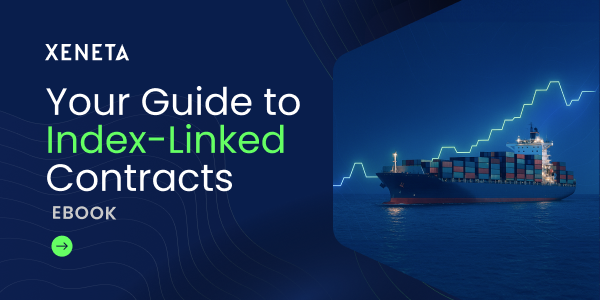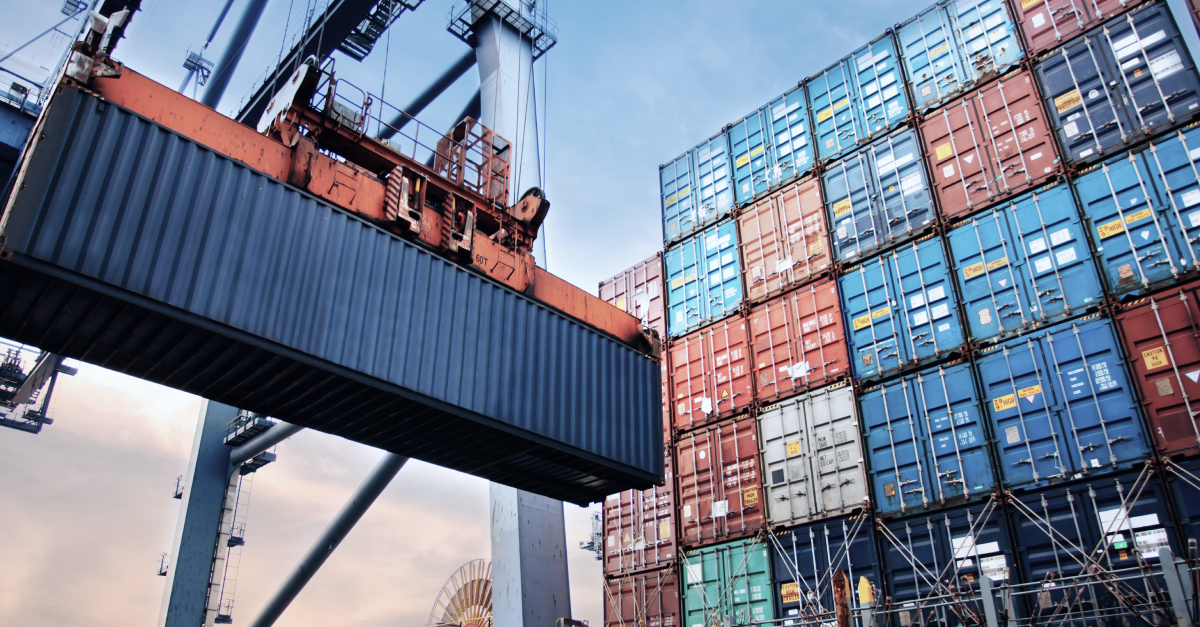An escalation in missile and drone attacks by Houthi militia on merchant ships passing through the Red Sea and Gulf of Aden has raised safety and supply chain concerns across the ocean freight industry.
Yesterday, Thursday, it was reported a missile was fired at the ‘Maersk Gibraltar’ vessel while en route from Salalah in Oman to Jeddah in Saudi Arabia. The missile did not strike the ship.
This follows a string of attacks including missile strikes on a Norwegian flagged vessel in the Bab el-Mandeb Strait and a container ship operating between Asia and the Mediterranean. On Tuesday, a vessel operated by shipping company Ardmore came under attack in the Red Sea.
Peter Sand, Chief Analyst at Xeneta, has taken part in a Q&A on the potential impact of these attacks.
Will the attacks lead to the closure of the Suez Canal?
“At this stage, it is highly unlikely the Suez Canal will close, but if there are further significant escalations then we cannot rule it out completely, even if it is just for a few days.
“While I believe most ships will continue to transit the Suez Canal, we are already seeing reports of ocean freight liner operators and owners choosing to re-route vessels away from the region following the attacks.
“The importance of the Suez Canal to global supply chains means even a small disruption can have big consequences.”
How serious is the threat to ships in the region?
“We have seen piracy in the Gulf of Aden for many, many years. In fact, 10 years ago this region was rampant with piracy and it was deemed a high risk area in marine insurance terms.
“By the end of 2022, the situation seemed to have calmed down and the ‘high risk’ categorisation was removed.
“Unfortunately, the risk has escalated significantly in recent months with numerous missile attacks by Houthi militia.
“Any ship transiting the Suez Canal must also sail through the Red Sea and Gulf of Aden and Houthi militia have stated any vessel is a target.
“However, I still believe most ships will continue to transit the Suez Canal despite this threat, just as they did when piracy was such a high risk.”
What are the alternatives to the Suez Canal?
“If ships do re-route away from the Suez Canal then it will cause disruption, especially given the ongoing restrictions due to drought at the Panama Canal.
“The only real alternative to the Suez Canal is going around the Cape of Good Hope, which adds up to 10 days sailing time on an Asia to North Europe or East Mediterranean service. Some ocean freight liner operators may feel this is the best option given the risk to their vessels and crews in the Red Sea and Gulf of Aden.”
So, my goods might take longer to arrive, but will it cost more money?
“There is always the risk rates will be impacted in a scenario such as this. Whenever there is uncertainty there is the opportunity for carriers and forwarders to increase rates.
“Around 50 vessels transit the Suez Canal every day, of which more than a quarter are container ships. Following the Ever Given incident in 2021 we saw rates between Far East and North Europe sky-rocket.
“I am not suggesting anything on that scale, especially because that was also during the pandemic. But I would expect some kind of over-reaction, at least in the short term, where rates jump on all trades which utilise the Suez Canal. Whether that is a 5, 10, 30 percent increase we will not know until we see how the situation evolves in the next few months.
“We could even see rates double from today’s level if the situation continues to escalate.”
Why is there such anxiety in the industry regarding the potential impact of these attacks?
“We should not ignore the danger these attacks pose and the potential human cost. But if I look at this purely from a global supply chain perspective, we saw back in 2021 during the Ever Given incident the severe consequences of a closure of the Suez Canal.
“Global supply chains were plunged into chaos and it took many months to restore order.
“The ocean freight industry has been deeply scarred by Ever Given and is frankly terrified of any situation which threatens the closure of the Suez Canal.”
This is the last thing shippers need when we have only just recovered from the pandemic?
“In Xeneta’s Ocean Freight Outlook 2024 we raised the potential for ‘black swan’ events as one of the major themes to be aware of in the coming year.
“Of course, no one can predict drought or missile attacks, but the possibility of incidents such as this occurring should never be too far from the thoughts of anyone involved in the ocean freight shipping industry.
“Major global incidents and natural disasters can, do and will continue to take place. The best way to be ready for when they do happen is to be armed with data and intelligence across your entire supply chain. Only then can you make informed and efficient decisions to protect your business.”
.png)







.avif)